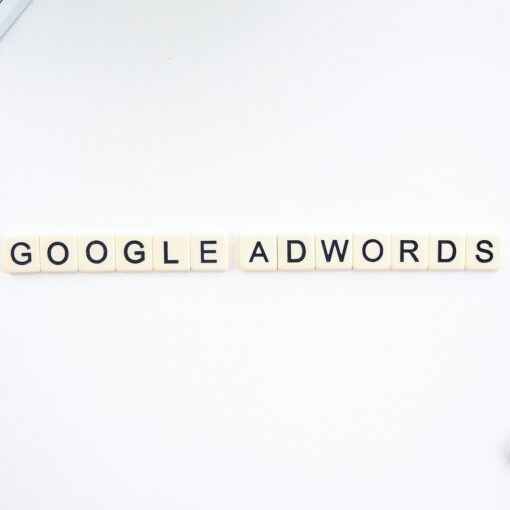
In the world of online business, paid search engine marketing is like finding a golden ticket in a chocolate bar—if you know how to unwrap it. Many entrepreneurs dive into this arena with dreams of instant riches, only to discover that success requires more than just throwing money at ads. It’s about strategy, understanding your audience, and knowing how to navigate the complex landscape of keywords and bidding wars.
Before you start splurging on clicks like they’re going out of style, let’s take a moment to explore the ins and outs of making money through paid search. With the right approach, you can transform those clicks into loyal customers and boost your bottom line. So buckle up as we delve into the essential tactics that will help you harness the power of paid search marketing!
Do you want to make money from your website or blog? Try running Paid Search Engine Marketing. It is one of the most powerful ways to make money online, and it can be done in a few minutes a day. This article will teach you how to do paid search engine marketing.
Paid search engine marketing is a great way to learn how to make money and has become the most efficient and successful form of online advertising. Advertisers can use paid search engine marketing on various popular websites such as Google, Bing, and Yahoo. Paid search engine marketing is also the most common form of internet marketing because it allows companies to target specific customers by using advanced techniques such as keyword research and geographic targeting.
Online advertising is a great way to make money because it doesn’t require employees or large amounts of inventory. Paid search engine marketing (PPC) is a form of online advertising that advertises on the top and sidebars of search engines like Google and Bing, and also on other sites like Facebook and YouTube. Read the rest to learn how you can start your own PPC campaign and make money.
Pay-Per-Click (PPC) advertising, in comparison to other Internet marketing tactics for generating profit for an online company, offers more potential of success. According to industry experts, pay-per-click (PPC) marketing is a cost-effective method of promoting a company or an individual’s enterprise to the online public, lowering costs while increasing visibility on the World Wide Web, according to the experts.
1. What Exactly Is Pay-Per-Click Advertising?
Internet marketing tactics need you to pay a fee in exchange for placing your advertisements on the Internet. Pay-Per-Click advertising provides search engine coverage for your product and services, as well as visibility for your company in the internet world, all without draining your bank account with the associated costs of traditional advertising.
You will be charged for Pay-Per-Click advertising in the same way that you would for any other advertisement; the only difference is that you will only be charged when someone clicks on the ad and is redirected to your website; you will only be charged when someone clicks and generates traffic to your website. It is advantageous to use PPC since it allows you to publish as many advertisements as you want without having to pay for them, which is particularly useful if you want complete control over your marketing budget.
2. Determine the requirements of your potential customer base.
First and foremost, it is critical to thoroughly grasp the requirements of your target market before launching into Pay-Per-Click Search Engine Marketing. It is critical to understand the individual demands and desires of your prospective customers in order to create relevant advertisements and employ the appropriate keywords to get traffic from search engines.
The importance of research for this phase of the project cannot be overstated. To find the most often used search phrases for your goods and services, begin by doing keyword research. Concentrate only on keywords and phrases that have the most potential for converting visitors into leads and so generating revenue.
3. Keeping track of your leads
Certainly, paid search engine marketing may be a strong basis for the success of your online enterprise, but experts recommend that you monitor your advertising to discover whether a certain phrase is bringing you any money. You do not want to incur additional expenses by continuing to run PPC advertisements that are not beneficial to your business. While you’re tracking your advertisements, you’ll also have the chance to learn which keywords are most likely to convert visitors into leads, which may help you tweak the other ads you have at your disposal to get better results.
While you’re at it, you may want to have a look at the tools provided by your PPC campaign to help you keep track of your visitors before you start tracking it down. Do not become involved in a campaign unless you are familiar with the reporting process.
4. Preventing Mistakes from Happening
In the Pay-Per-Click Search Engine Market, mistakes may cost you a lot of money if they are not corrected immediately. These basic errors are the most often seen, and they generally begin with your primary website, which is where you present your goods and services.
One of the most typical errors is the link that is utilized in the PPC advertisement. Many businesses rely on links from their homepage, rather than directing your prospective customers straight to your goods or services. It is recommended by experts that the links should take the online masses to the selling page, which is particularly designed to facilitate the purchase of the goods. Remember, Pay-Per-Click traffic is expensive, thus it is preferable to have your visitors convert into sales in order to maximize your profit and success from your advertising efforts.
The selling page, on the other hand, should be tailored to the requirements of your prospective market. It should be tailored with promotional campaigns that will assist in persuading your visitors to acquire the goods rather than just looking at it out of sheer interest. Some companies even include video marketing into their sales pages in order to encourage more people to purchase their products and services by offering them with high-quality content.
Putting a bid on a certain term, particularly one that is quite popular, might be extremely costly. When you attempt to include a certain term in your PPC campaign, you may find yourself straining your marketing budget a little. If you do not want to squander money needlessly in a battle with rivals over the ownership of a term, you may wish to spend your money on the less costly, less popular keywords in order to get greater coverage for your investment.
Patience and persistence are key. The path to profitability isn’t always straightforward; it involves continuous testing and refinement. But fear not! Each click brings valuable insights that can guide your strategy toward greater success.
So go ahead, unleash your newfound knowledge onto the digital marketplace! With creativity and a dash of determination, you’ll be well on your way to turning those ad dollars into real revenue. Happy marketing!
Suggested External Resources
A Beginner’s Guide to Google Ads
https://support.google.com/google-ads/answer/6154840
Paid Search Marketing: A Complete Guide
https://www.wordstream.com/paid-search-marketing
How to Make Money with Paid Search Advertising
https://www.searchenginejournal.com/make-money-paid-search-advertising/392708/
The Ultimate Guide to PPC Marketing
https://neilpatel.com/blog/ppc-marketing-guide/
Google Ads Best Practices: Tips for Success
https://www.shopify.com/blog/google-ads-best-practices

Kevin Collier is a seasoned writer and technology enthusiast with a passion for exploring the latest industry trends. With a background in digital marketing and content creation, he brings insightful perspectives to imhits.com on emerging technologies, innovations, and their impact on everyday life. When he’s not writing, Kevin enjoys experimenting with new gadgets and sharing his knowledge with fellow tech aficionados.





